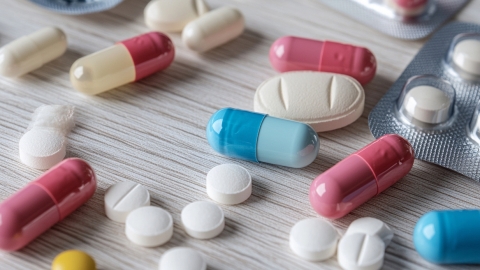What should patients with hypoglycemia avoid eating?
Patients with hypoglycemia generally do not have absolutely forbidden foods, but they should usually avoid or cautiously consume highly refined sugary snacks, alcoholic beverages, energy drinks, excessive dietary fiber foods, and rapidly glycemic desserts, along with certain medications such as glibenclamide tablets, metformin hydrochloride tablets (excessive dosage), gliclazide tablets, repaglinide tablets, and acarbose tablets (off-label use). Detailed explanations are as follows:

I. Foods
1. Highly refined sugary snacks: Such as candies and chocolates, which contain extremely high levels of sugar. Blood sugar levels rapidly spike after consumption and then sharply drop, causing significant fluctuations in blood glucose and increasing the risk of recurrent hypoglycemia.
2. Alcoholic beverages: Alcohol inhibits the breakdown of liver glycogen into glucose, reducing glucose production, while simultaneously accelerating insulin secretion, further lowering blood glucose levels and easily inducing or worsening hypoglycemic symptoms.
3. Energy drinks: Some energy drinks contain high sugar levels, causing abrupt increases and decreases in blood glucose after consumption. They may also contain nerve-stimulating ingredients that interfere with blood glucose regulation mechanisms, which is unfavorable for maintaining stable blood sugar levels.
4. Excessive dietary fiber foods: Such as large amounts of unprocessed wheat bran and celery. Excessive consumption delays intestinal absorption of glucose and may worsen hypoglycemia when fasting, affecting timely recovery of blood glucose levels.
5. Rapidly glycemic desserts: Such as cakes and sweet breads, which contain large amounts of refined sugar. Blood glucose levels sharply rise within a short time after consumption, stimulating excessive insulin secretion, followed by a rapid drop in blood glucose, triggering hypoglycemic reactions.
II. Medications
1. Glibenclamide tablets: A sulfonylurea antidiabetic drug that promotes insulin secretion. Using this medication may cause excessively high insulin levels in patients with hypoglycemia, further lowering blood glucose and worsening hypoglycemic symptoms. It must be strictly prohibited.
2. Metformin hydrochloride tablets (excessive dosage): Excessive use inhibits glucose absorption in the intestines while increasing glucose consumption, lowering blood glucose levels. Hypoglycemic patients using this drug may experience exacerbated hypoglycemia.
3. Gliclazide tablets: A sulfonylurea antidiabetic drug that stimulates insulin secretion from pancreatic β cells. Using this medication in hypoglycemic patients can further lower blood glucose levels, worsening the condition. It must be avoided.
4. Repaglinide tablets: A non-sulfonylurea insulin secretagogue that stimulates rapid insulin release. Using this medication in hypoglycemic patients can further decrease blood glucose levels, worsening physical discomfort. It should be avoided.
5. Acarbose tablets (off-label use): Primarily used to reduce postprandial blood glucose. Off-label use in hypoglycemic patients inhibits carbohydrate breakdown and absorption, potentially worsening hypoglycemic symptoms and affecting glucose recovery.
Daily management for hypoglycemic patients should include maintaining regular meals, choosing nutritionally balanced foods, and avoiding prolonged fasting periods. Patients must clearly inform their doctors about their hypoglycemia history before taking any medication and strictly follow medical instructions—never adjusting medication dosages independently. Regular blood glucose monitoring is essential. If symptoms such as dizziness, palpitations, or sweating occur, indicating hypoglycemia, prompt sugar supplementation and medical consultation are necessary.










